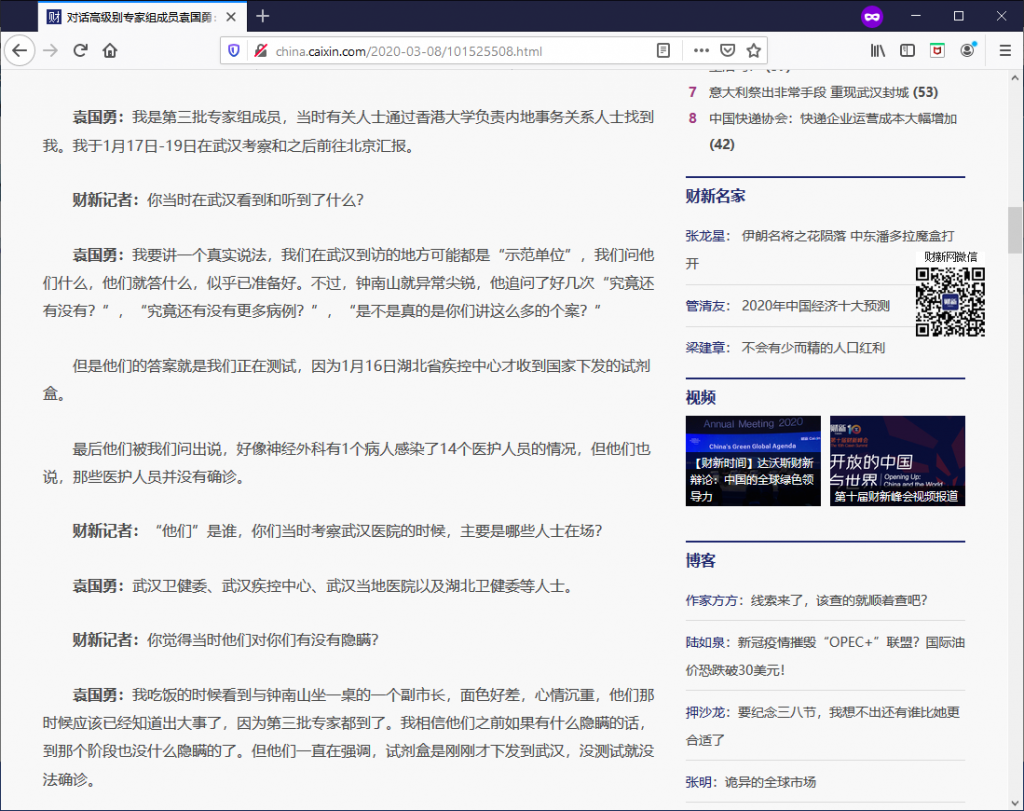Xi Jinping visited Wuhan on March 10. He had a tele-conference with the medical staff working at the Huoshenshan Hospital and also visited a local community.
Radio France International reported that Xi’s visit to the local community, the East Lake Courtyard Community, was a fake show.
Postings on social media reported that police officers came to residents’ homes and sat on the balconies, to prevent residents from watching Xi’s visit, leaving the apartment, or shouting from the apartment. A posting on a social media group of the East Lake Courtyard Community was an “Emergency Notice” to the First Unit and Second Unit of the 29th Building in the community. The notice said, “Today, the Wuhan Police Department will send police officers to enter each home on or above the 9th floor for a security check. They will stay inside the home for an hour. Police officers will wear protection uniforms and disinfect themselves in advance. Everyone please support the work of the police.”
The Wuhan police did this because when Sun Chunlan, the Vice Premier, visited a residential neighborhood on March 5, people shouted “Fake” to greet her. (See Chinascope posting: Hiding Information: Residents Shouted “Fake” When Sun Chunlan Visited a Residential Neighborhood)
Another video on Internet showed that Xi Jinping’s car slowly entered into the community. Then Xi came out. A female voice in the video asked, “Can we shout now?” No response. A little bit later, an official came to greet Xi and raised his arm to signal the start. The female voice asked again, “Can we shout now?” Another female voice answered, “Yes.” Then came the two females’ voices shouting, “Hello Chairman Xi! Hello Chairman Xi! Go Wuhan! Go China!” Xi answered, “Good, Hello!” Netizens pointed out that these two women could have been actresses staged to play residents there.
Related postings on Chinascope:
- Leadership: Political Signs of Xi Jinping’s Visiting to Wuhan
- Hiding Information: Residents Shouted “Fake” When Sun Chunlan Visited a Residential Neighborhood
- Leadership: The CCP Was Forced to Reverse the “Be Grateful to the CCP” Education
- Leadership: Wuhan Party Chief Asked Wuhan People to Be Grateful to Xi Jinping and the CCP
- Leadership: “The General Secretary Came to My Home”
- Leadership: The Hype and Stop of the Book “The Great Power Fighting Epidemic”

